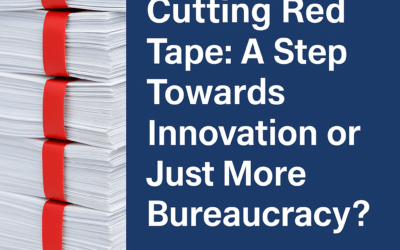In a landmark move, the Chancellor’s 2024 Spring Budget has earmarked a transformative £3.4 billion investment in NHS technology, aiming to usher in a new era of efficiency and productivity within the UK’s healthcare system. This significant financial commitment underscores a strategic pivot towards leveraging technology to enhance both patient care and the operational efficacy of the NHS, promising a 2% annual increase in productivity over the coming years.
The Catalyst for Change
Amidst a broader £6 billion NHS funding initiative, the allocation of £3.4 billion specifically for technology underscores a decisive step forward in marrying clinical excellence with technological innovation. By updating antiquated IT systems and integrating artificial intelligence (AI) into clinical diagnostics and administrative processes, the NHS is set to become “the world’s largest digitally integrated healthcare system”. This includes the modernisation of MRI scanners and a universal shift towards electronic patient records.
The Road Ahead
With the Chancellor’s stipulation that public sector investments must yield annual savings equivalent to their total cost within five years, the healthcare sector stands at a pivotal juncture. This approach not only challenges the status quo but also opens a dialogue on the sustainability of technological investments in healthcare.
However, the introduction of this funding also comes with its set of challenges. The NHS’s legacy of promised but under-delivered technological advancements has cast a shadow of skepticism. Ensuring that this substantial investment translates into tangible improvements in patient care and system productivity will require a concerted effort from all stakeholders involved.
Why This Matters for SMEs and Innovators
For small and medium-sized enterprises (SMEs) and innovators in the healthcare technology space, this budget announcement represents both a validation of their critical role in healthcare’s future and a call to action. The focus on upgrading core IT infrastructure before diving into more avant-garde technological ventures like AI is a recognition of the foundational work needed to truly innovate in healthcare.
This is where entities like Pym’s Consultancy step in, bridging the gap between groundbreaking technological solutions and their practical implementation within the NHS. With a rich history of working alongside SMEs, Pym’s Consultancy is poised to guide these innovators through the nuanced landscape of NHS procurement and digital transformation.
A Call to Collaboration
As the NHS embarks on this ambitious journey towards digitisation and improved productivity, the collaboration between healthcare leaders, technology innovators, and frontline staff will be paramount. It’s not just about injecting funds into the system but about nurturing an ecosystem where technology serves as a catalyst for comprehensive care and operational excellence.
In conclusion, while the road ahead is heavy with expectations and challenges, the Chancellor’s £3.4 billion investment in healthcare technology is a bold step towards a more efficient, integrated, and innovative NHS. For SMEs and medtech innovators, the message is clear: the future is digital, and the opportunities to contribute to this transformation are vast. Now more than ever, partnerships between technology providers and the healthcare sector are vital to unlocking the potential of this investment, promising a brighter future for patient care in the UK.
For an example of how Pym’s Consultancy can assist your healthcare technology venture, and see efficiency savings in action, visit Tutum Medical.
For NHS leaders and healthcare SMEs alike, navigating the new landscape of technology-enhanced healthcare offers great opportunities. As we stand on the brink of this digital revolution, the promise of a more efficient, effective NHS is potentially within our grasp.



